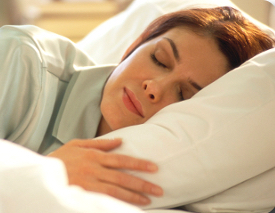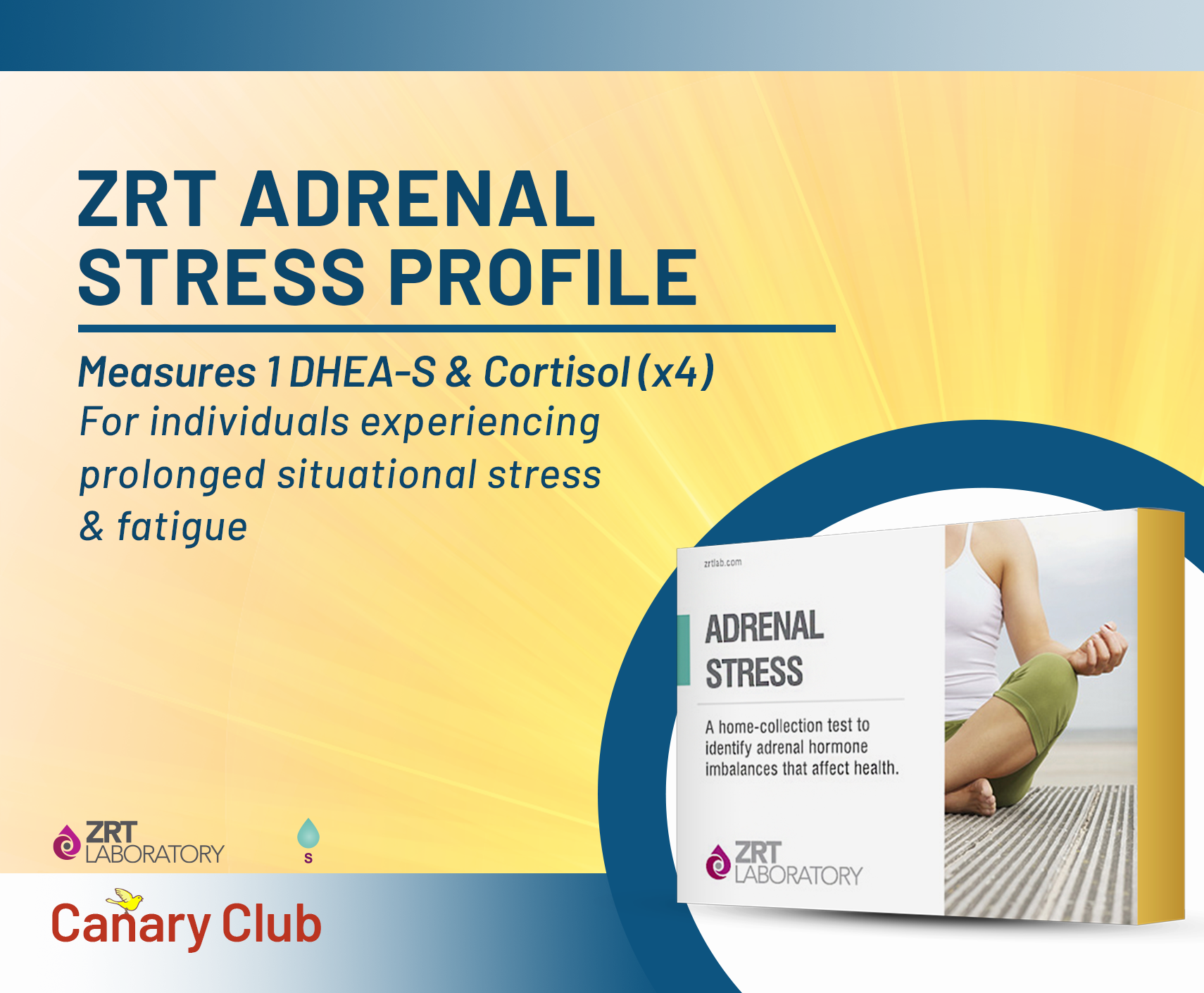Spice. Is there a connection?
Formerly having burned out her adrenal glands to a full Stage 3 Adrenal Fatigue level, Kitty was motivated to develop healthy solutions to transform the way the world uses spices.
Canary Club is pleased to introduce our members to the impressive superfood work of Kitty Wells. She has done extensive research on the health benefits of spices and is passionate about developing food as medicine with a focus on the science of spices for health and culinary creativity.
As an experiment, a team of Canary Club staff had committed to "Rethink the Drink" and eliminate caffeine from our daily intake and at the same time determine the effects of spice. The daily routine of analyzing the effects of the Spice Elixirs created by Kitty showed a consistent and positive effect on our energy levels throughout the day.
We hope you find Kitty's comments on Adrenal Fatigue to be as compelling as we do.

"Healing from Adrenal Fatigue: 21 Days to the Best Morning Ever"
by Kitty Wells, Co-Founder of Spice Pharm and author of the book Anti-Aging Secrets of Spices.
"The moment when you first wake up in the morning is the most wonderful of the twenty-four hours" Monica Baldwin, author of I Leap Over the Wall.
Apparently, she never suffered adrenal fatigue.
I remember the days when my adrenals were exhausted. Mornings were anything but wonderful. Crossing the chasm between sleep and awakening was a daily journey of exhaustive effort. Groggy, tired, and addicted to the snooze button, I could not leap out of bed, much less over a wall. Mornings were a bleary slog into yet another day of dragging fatigue. Nights were long and sleepless, and I couldn't shut off my mind and drift into slumber. After a short and fitful sleep, the morning struggle returned all too soon.
Have you ever felt this way?
It's estimated that up to 80 percent of adults experience adrenal fatigue during their lifetimes. While many mainstream doctors deny its existence as a "real" illness, the exhausting effects of adrenal fatigue are very real to the people who suffer from it.
If you've been diagnosed with adrenal fatigue, your adrenals are producing either too much or too little of the stress hormone cortisol. This can be determined by an Adrenal Stress Profile which measures your cellular levels of cortisol at four key times in a day, revealing whether you have high cortisol (which can have similar symptoms to low cortisol), or a mix of highs and lows, or a majority of lows.
When functioning properly your body's cortisol production follows a smooth curve, rising in the morning to energize your wake-up, falling over the course of the day, and hitting its lowest between midnight and 4:00 am when you should be sound asleep.
Cortisol is your great protector in times of life-threatening danger. It leads to a complex hormonal cascade that pumps your body's systems with the strength and speed to fight or flee. This life-saving cascade turns deadly when it is constantly turned on due to chronic daily stress. Prolonged elevated levels – even from small stressors -- take a heavy toll on your body:
- Raises your blood sugar and inhibits the action of insulin, contributing to weight gain and metabolic dysfunction
- Narrows your blood vessels and increases blood pressure, leading to cardiovascular damage, plaque build-up, and the perfect scenario for a heart attack.
- Suppresses your memory and cognitive functioning, making you forget names, words and worse, multiplying those "senior moments
- Suppresses your immune system, compromises your digestion and nutrient absorption, tanks your sex drive and energy
- Accelerates aging, thins the skin, reduces bone and muscle density, and sets you up for more serious conditions such as depression, heart disease, diabetes, and cancer
Over time, heavy production of cortisol leaves your adrenals sputtering. The smooth curve of rising and falling careens into out-of-sync highs and lows. Unchecked, cortisol output plummets to constant lows. Adrenal fatigue can take a decade or more to develop and generally follows three stages of progression.
Which Stage of Adrenal Fatigue Are You In?
 Stage 1 Alarm: Your normal hectic life is filled with conflicting demands and challenges beyond your control – financial worries, relationship problems, pressures at work or school, childcare, elder care, travel schedules, traffic jams, and more. You may often feel angry, frustrated, anxious, worried or sad. You may feel your heart pounding, your blood pressure rising, disturbances in digestion, sleep, and emotions. Your body may be under other stressors you don't even feel – junk food, sugar, environmental toxins, low-lying infections. Your adrenals go into overdrive, cranking out increased levels of cortisol. But it's not so bad – fatigue is usually mild and mostly occurs in the morning upon awakening or in the mid-afternoon. You can kick-start your energy with coffee, energy drinks, and sugary snacks. Your body is in an alarm state, but you can still mask the problem.
Stage 1 Alarm: Your normal hectic life is filled with conflicting demands and challenges beyond your control – financial worries, relationship problems, pressures at work or school, childcare, elder care, travel schedules, traffic jams, and more. You may often feel angry, frustrated, anxious, worried or sad. You may feel your heart pounding, your blood pressure rising, disturbances in digestion, sleep, and emotions. Your body may be under other stressors you don't even feel – junk food, sugar, environmental toxins, low-lying infections. Your adrenals go into overdrive, cranking out increased levels of cortisol. But it's not so bad – fatigue is usually mild and mostly occurs in the morning upon awakening or in the mid-afternoon. You can kick-start your energy with coffee, energy drinks, and sugary snacks. Your body is in an alarm state, but you can still mask the problem.
Stage 2 Resistance: After a period of chronic stress, perhaps spiked by a major incident, your adrenals can no longer keep up with your body's constant demands for cortisol. Your fatigue is deeper and longer-lasting. It's harder to get to sleep, and harder to get up in the morning. It takes more coffee to get going. Your thyroid is likely affected as well, and you may be more sluggish and sensitive to cold. Your sex drive goes missing and your digestion falters. Allergies may kick in as your immune system weakens, and pounds come packing on around your middle as insulin resistance builds. You become more irritable, anxious, and moody, and life may lose its sparkle. If you go to a conventional doctor he may check your hormones but declare them to be "in the normal range," and prescribe anti-depressants.
Stage 3 Exhaustion: As the adrenal function is further weakened, you produce less and less cortisol. Your body's primary goal becomes the conservation of energy, and it goes into a slow-down catabolic mode and starts to break down muscle tissue to produce energy. Fatigue, aches and pains become more pronounced. Toxic metabolites begin to accumulate throughout your body, leading to brain fog, insomnia, and depression. It's harder and harder to get out of bed, and your productive hours in the day diminish. Your body cries for help.
I was in early Stage 3 when I finally found a medical practitioner that could help me. At that time he was a rare integrative MD who took adrenal fatigue seriously. He tested my diurnal cortisol levels and prescribed supplements that helped get me on the path of recovery. I developed an insatiable curiosity about the biochemistry and mindset of stress, chronic disease, and aging. I've spent the last ten years studying with experts, researchers, and clinicians and developing my own educational programs and stress-relieving products to help others on their journey.
The Path to Recovery
The good news is that no matter which stage you are in, you can recover. If you make a concerted effort with lifestyle, nutrition, supplements, and stress management, you should see a marked improvement in a few weeks. Total healing can take longer, from a couple of months to a couple of years depending on the severity of your condition. Patience and diligence are required, as you may experience setbacks along the way. But when you commit to rebuilding your vital energy, it's a wonderfully rewarding path as you start feeling better, brighter, and more energized.
What's So Special About Morning?
To recover from any stage, one of the best things you can do for yourself is to invest your attention and energy into having a good morning. Those first crucial waking moments and hours set the tone for your whole day.
How you spend the time immediately after you wake chemically changes your body. Your morning activities determine: what hormones are released or inhibited. How does breakfast impact these chemicals and hormones? How does your morning mindset affect the rest of your day? And, most importantly, how can you use all of this information to minimize stress on your adrenal system and support its repair?
Are you stressed and frazzled, or operating in smooth control? By following these simple practices for having a good morning you'll set yourself up for an energized, productive, and happy day.
1. Set yourself up the night before
 Taking a little time in the evening to prepare for sleep and get the next day organized will do wonders in reducing stress and getting a good night's rest.
Taking a little time in the evening to prepare for sleep and get the next day organized will do wonders in reducing stress and getting a good night's rest.
First, turn off those glowing screens by 10:00 pm at the very latest – the TV, the Internet, cellphone, game console, etc. Yes, you might be accustomed to doing email until 2:00 am or watching late-night drama, but it's time to break that habit that keeps you buzzing into the wee hours. Not only does it rev up your brain with electrical activity and racing neurons, but it also stimulates cortisol release. Not exactly conducive to sleep!
Make a list of what you want to accomplish tomorrow. Prioritize the top 3 to 5 items – now's not the time to stress out over an overwhelming task list! Remember that tomorrow is another day. Take a deep breath and take things one step at a time.
Do you stare blankly in your closet in the morning wondering what to wear? Can't find the right pants to go with the shirt you've selected, leading to a panicked search and destruction in your drawers? Leave this little stressor behind by choosing your outfit and laying out the pieces before you go to bed.
Do the same with your breakfast! Avoid a morning rush of what to eat, as you'll often end up with something unhealthy. A good breakfast is critical to your recovery. Plan for protein, high-quality fat, and complex carbs. Consider leftovers from dinner – a nice piece of chicken, wild salmon, a bowl of soup, brown rice, quinoa, or another goodie.
Do you know that 11-midnight second wind? It's fueled by out-of-sync cortisol. Don't let it kick in. Go to bed by 10:30 pm at the very latest. Make your bedroom dark, cozy, and uncluttered. Unplug or cover all the glowing and blinky LED lights. They work against quality shuteye, beaming through the retina into a part of the hypothalamus (the area of the brain that controls several sleep activities) and disrupting the release of the sleep-inducing hormone, melatonin.
Now sleep for 9 -10 hours if you can. Reduce it to 8 if you must.
2. Ditch the coffee, go for the spice
Face it, if you're adrenal fatigued, you're probably - no, almost certainly! – propping yourself up with coffee, cola, energy drinks, mate, or some other caffeine carrier. Can't face the morning without a cuppa Joe? I understand. But while caffeine may do wonderful things for robustly healthy people, it's stressing your adrenals and squeezing the life out of them. You've got to stop that.
It's a hard habit to break. I don't recommend going cold turkey -- I did that and endured horrific caffeine-withdrawal headaches. It's better to taper down slowly over the course of several weeks. If you drink two cups or more in the morning, taper it down to one. Then a half, then a quarter cup, then down to none.
If herbal tea doesn't satiate your craving for coffee, replace it with Spice Elixirs! I formulated Spice Elixirs for myself to cut cravings for coffee and sweets, to reduce inflammation, and to provide sustainable energy without the jitters or crash. After sharing them widely, I find that lots of people agree—nothing else energizes you in the same way. They satisfy on a whole new metabolic level. Plus they have robust flavors that tea just can't match.
Use Spice Elixirs for the perfect afternoon pick-me-up as well. As you taper off coffee, quickly get to the point that you never drink a caffeinated beverage afternoon. You've got to draw a line and stick to it.
3. Have a treat, but avoid refined sugar, high-glycemic fruit, juice, or anything with flour.
Knowing there's a treat waiting for me is an extra little incentive to get out of bed. How about you? But I've learned to ditch some old favorites that are a sure way to spike your blood sugar and therefore tweak your adrenals. You do want to feel better, don't you?
 Pastries, pancakes, croissants, toast, and anything made with flour or refined sugar are just OUT OUT OUT. Most commercial juices, granolas, cereals, and yogurts are in this category as well. Seriously bad news if you want to recover, as they set you up for a metabolic yo-yo and crash. Read the labels! Look at those carbs and sugars! Toss them in the trash, NOW!
Pastries, pancakes, croissants, toast, and anything made with flour or refined sugar are just OUT OUT OUT. Most commercial juices, granolas, cereals, and yogurts are in this category as well. Seriously bad news if you want to recover, as they set you up for a metabolic yo-yo and crash. Read the labels! Look at those carbs and sugars! Toss them in the trash, NOW!
You need some protein, good fats, and complex carbs to get your engines running smoothly. Organic eggs, chicken, grass-fed beef, wild salmon, sardines, chia pudding, berry and/or green smoothies, soups, baked sweet potatoes with cinnamon, apples with almond butter, oranges with coconut -- these are just some of the treats awaiting your morning pleasure! Make extra for dinner, and enjoy leftovers. Sprinkle generously with herbs and spices for flavor and health.
Total Tonic Chai and Stress-Less Chocolate are instant "just-add-water" grab-n-go goodies that can also figure into your morning treat lineup. Made with whole spices, botanical extracts, rich raw cacao, coconut milk powder, and a touch of unrefined coconut sugar and no-calorie stevia, they add a seductively healthy indulgence to your day.
4. Breathe in gratitude, jot it down
 It's amazing what a gratitude practice can do for your stress levels and healing. Over the last decade, there have been dozens of marvelous studies done to prove it. One looked at counting blessings vs. burdens and found that peeps keeping gratitude journals reported 10% less physical pain and 25% better sleep. Another showed that a practice of gratitude reduced depressive symptoms by 35%. And yet another study showed that adults who were taught to "cultivate appreciation and other positive emotions" realized a 23% reduction in cortisol.
It's amazing what a gratitude practice can do for your stress levels and healing. Over the last decade, there have been dozens of marvelous studies done to prove it. One looked at counting blessings vs. burdens and found that peeps keeping gratitude journals reported 10% less physical pain and 25% better sleep. Another showed that a practice of gratitude reduced depressive symptoms by 35%. And yet another study showed that adults who were taught to "cultivate appreciation and other positive emotions" realized a 23% reduction in cortisol.
You don't have to get all fancy on this one. Just take a moment each morning. Think of something that you are grateful for. Close your eyes, breathe into your heart. Let it sink in. Deeply. Daily. Keep a little notebook handy to jot down your thoughts. Trust me, this can be life-changing.
5. Give yourself a pat-down
When you're in the throes of adrenal fatigue, the last thing you feel like doing is probably exercise. Strenuous exercise is the last thing you need as it taxes the adrenals. Try this fast and easy pat-down to increase your circulation, stimulate blood and lymph flow, and release oxytocin, the feel-good love hormone. After a few days or weeks of practice, you should feel the energy to add a brisk walk or yoga to round out your morning.
 First, stand with your feet shoulder-width apart. Using both hands, gently but firmly tap the crown of your head for 10 taps. Move to your forehead, temple, cheekbone, and jawline repeating the tapping in each place.
First, stand with your feet shoulder-width apart. Using both hands, gently but firmly tap the crown of your head for 10 taps. Move to your forehead, temple, cheekbone, and jawline repeating the tapping in each place.
Then move to each leg, one at a time. Use both hands to tap the outer and inner sides of the ankle, moving up the outer and inner leg, to each hip and to your sacrum and lower back.
Hold out your right hand, and use your left hand to tap from your right hand, up to your arm and shoulder, and around to your upper back. Repeat with the other hand.
Move to the front, tapping your clavicles and sternum.
You're done in 2 minutes! Doesn't the tingle feel good? Pay special attention to anywhere you hold tension, and give it extra attention.
Regardless of the depths of your fatigue, taking just a few minutes in the morning can set you up for a better day. Practicing these five simple practices on a regular basis, you can nourish your body, mind, and spirit, reduce stress, and accelerate your healing from adrenal fatigue.
Here's to your health and rebounding energy!
Kitty Wells was a 'Tech Exec' turned 'Spice Geek' following the passion-driven entrepreneurial drive to launch wellness products using science-based wellness & anti-aging facts. Her company develops food as medicine, with a focus on the science of spices for health & culinary creativity. After a bout with Stage 3 adrenal fatigue, Kitty left the corporate world of Silicon Valley to co-found Spice Pharm and devote herself to the study and creation of stress-relief and products and educational programs. Spice Pharm was born from a deep love for and fascination with all-natural means of rejuvenation and wellness; the ambrosial flavors and aromas of spices; the stabilizing balance of adaptogenic herbs; and the sciences of biochemistry and nutrigenomics that reveal their potent bioprotective power.
Canary Club at-home adrenal/cortisol tests:
Diurnal Cortisol Test: only cortisol (4 tests in one day)
Cortisol Awakening Response: only cortisol (7 tests in one day) - shows how fast (or slow) your cortisol rises after waking.
Adrenal Stress Test: measures cortisol (4x) as well as DHEA-S for overall adrenal health
Cortisol testing is also included in all our Comprehensive (Thyroid + Hormones) Panels and Hormone (adrenal/sex hormone) Saliva Tests.

